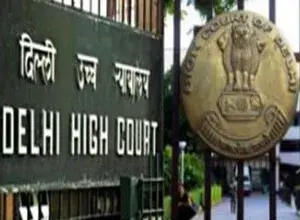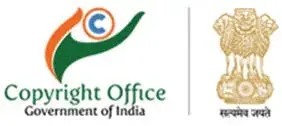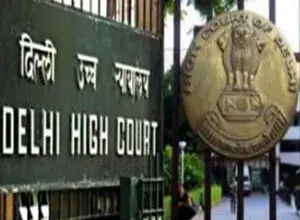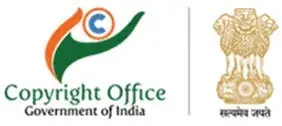‘IP4Kids’ registered as a Trademark in Switzerland

Recently S.S. Rana & Co. added another milestone to its journey. IP4Kids, a C.S.R. initiative of the Firm, has been successfully registered as a trademark in Switzerland.
IP4Kids is a sensitization program to spread awareness about Intellectual Property Rights amongst the younger generation. The Firm under the IP4Kids banner focuses on imparting IP knowledge to the future nation builders. Through the initiative the firm aims to stimulate in the young minds of children, a culture of innovation, and to inculcate in them a respect for the fruits of one’s labor, as it firmly believes that “when one creates IP, he respects IP, as he expects others to respect his IP as well”.
The Firm’s endeavor is to provide a forum in which the relevant stakeholders continue to identify, discuss and elaborate creative solutions for building respect for Intellectual Property. It has also received support from the World Intellectual Property Organization (WIPO). Several workshops are organized from time to time focusing on interactions with students, teachers and young grassroots innovators, etc. Numerous competitions are also organized on yearly basis to award the younger generation for their talent. The winners are awarded exciting prizes including cash prizes. Some of the competitions are:
- ScriptIT Annual Essay Writing Competition to celebrate World Intellectual Property Day
- Write-a-thon Annual Essay Writing Competition to celebrate National Sports Day
- ‘Creatio’- Annual Design Competition to celebrate World Industrial Design Day
The Partners and Associates at the Firm actively participate in IP sensitization events like the Indian Innovation Festival, where the team interacted with students, teachers and young grassroots innovators.
India: Delhi High Court says exact use of Trademark needed to constitute Trademark Infringement

Sources: www.delhihighcourt.nic.in
Recently, the Delhi High Court in the case of Mankind Pharma Ltd Vs. Chandra Mani Tiwari and Anr. held that ‘to constitute infringement under Section 29(5), it is required to have the same or identical trade name and merely having a similar or deceptively similar trademark to the registered trademark would not constitute infringement.’
Brief Facts
- Mankind Pharma Ltd. (hereinafter referred to as ‘the Plaintiff’) was the registered proprietor of the mark ‘MANKIND’ in 42 different classes. It had been using it for three decades by adding prefix or suffix to the elements ‘MANKIND’ and/or ‘KIND’.
- Around November 5, 2016, the Plaintiff, while going through the record of the Trade Marks Registry, found out that the trade name ‘MERCYKIND PHARMACEUTICALS PRIVATE LIMITED’ (hereinafter referred to as ‘Defendant No. 2’) belonged to Chandra Mani Tiwari (hereinafter referred to as the ‘Defendant No. 1’), who was the director of Defendant No. 2.
- The Defendant no. 2 was doing business under the trademarks such as ‘MERCYMOX’, ‘MERCYCOUGH’ and ‘MERCYCOPE.
- Cease and Desist letters were sent to the Defendants. However, it refused to comply giving false and frivolous reason.
- Therefore, the Plaintiff instituted a suit against the Defendants before the Delhi High Court (hereinafter referred to as ‘the Court’) seeking permanent injunction to restrain the Defendants from infringing the Plaintiff’s trade mark/trade name ‘MANKIND’ and series of marks with the suffix/prefix ‘KIND’ and from passing off their business/goods as that of the Plaintiff, by adopting and using the trade name ‘MERCYKIND PHARMACEUTICAL PRIVATE LIMITED’ or in any other manner whatsoever thereby.
Issues
- Whether the Defendant is guilty of infringing the Plaintiff’s trademark and passing off of the Plaintiff’s goods by using the word ‘KIND’ in his tradename of “MERCYKIND”?
Plaintiff’s Contentions
- It was contended that the Defendants were carrying on their business by impersonating themselves to be under the umbrella of the Plaintiff.
- It was contended that the trade name ‘MERCYKIND PHARMACEUTICAL PRIVATE LIMITED’ was deceptively similar to the Plaintiff’s corporate name/trade name ‘MANKIND PHARMA LIMITED’.
- It argued that any trade name in the pharmaceutical company containing the element ‘KIND’ would amount to dilution of the Plaintiff’s well-known trademark and result in infringement and/or passing off the Plaintiff’s reputed trade name ‘MANKIND’.
Defendant’s Contentions
- It contended that on doing a mere search of the online records of the Registrar of Trade Marks in Class 05 would reveal that there are over 120 trademarks registered or pending, other than the registrations or applications in the name of the Plaintiff, in the names of several other entities/individuals, each of whom have registered or have applied for registration of marks with the suffix ‘KIND’.
- It argued that on seeing its corporate name ‘MERCYKIND PHARMACEUTICALS PRIVATE LIMITED’, as a whole, had no deceptive similarity with the Plaintiff’s trademark ‘MANKIND’.
- It further argued that mere presence of a publici juris term ‘KIND’ does not make the marks of the Plaintiff and the Defendant deceptively similar.
- It submitted that, in the course of its business, it coined and adopted several unique, distinctive and eye catchy trademarks with prefix ‘MERCY’ to market its medicinal and pharmaceutical preparations.
- It contended that the Plaintiff did not hold any registration for the word ‘KIND’ per se and its trade name ‘MERCYKIND’ did not constitute infringement within the meaning of Section 29(5) of the Trade Marks Act, 1999.
- It submitted that if ‘ATORKIND’ and ‘ATORVAKIND’ were visually, structurally and phonetically different, as admitted by the Plaintiff in the reply to the Examination Report of the Registrar of Trade Marks on the application of the Plaintiff for registration of “ATORVAKIND”, then ‘MERCYKIND’ and ‘MANKIND’ cannot be the same.
Court’s Decision
- The Court noted that the Plaintiff took a stand ‘ATORVAKIND’ is different from ‘ATORKIND’. This according to the Court was a relevant fact to be considered for the purposes of interim injunction. Therefore, the Court held that since Plaintiff concealed this fact, it was disentitled to any equitable relief.
- The Court analyzed the question that whether the affixation of the name of the Defendant No.2 with the word ‘MERCYKIND’ amount to use as a trade mark for the purposes of Section 29 of the Trade Marks Act, 1999?
- The question was answered by Court in negative. It held that ‘mere affixation of the name of the Defendant No.2 as manufacturer or marketeer of the drugs/medicines sold by the Defendants would not qualify as a use thereof as a trade mark even under Section 29(6) of the Act.’
- The Court also opined that drugs are prescribed by doctors by their generic name and not trade name, and hence the showing of manufacturer’s name in the drug was of not much consequence.
-
On the point of violation of Section 29(6) of the Trademarks Act, the Court held that ‘The Legislature, inspite of having used the words ‘identical with, or deceptively similar to’ in Section 29(1) to (4), having used different words in Section 29(5) and having not used such words in Section 29(5), is deemed to have not constituted use as name or part of the name, of a word or mark deceptively similar to the registered trade mark of the Plaintiff, as infringement thereof by the Defendants. What has been constituted as infringement under Section 29(5) is use of the registered trade mark as trade name or part of the trade name. Thus, there would have been infringement under Section 29(5), if the Defendants, as part of their name, had used ‘MANKIND’ or any other registered trade mark of the Plaintiff. Merely because ‘MERCYKIND’ in the name of Defendant No.2 Company may be deceptively similar to ‘MANKIND’ or any other registered trade mark of Plaintiff with ‘KIND’ as prefix or suffix, would not amount to infringement under Section 29(5).’
Therefore, distinguishing between cases of infringement by use of ‘trade name’ under Section 29(5) of the Trade Marks Act, and the cases of infringement by use of ‘trademark’ under sub-sections (1) to (4) of Section 29, the Court held that ‘to make out a case of infringement by use of ‘trade name’ under Section 29(5), mere similarity or deceptive similarity with the registered trademark was not sufficient and that there has to be exact use of registered trademark or part of it as the trade name of the business. The test of “similarity or deceptive similarity” was applicable only for cases of infringement by use of ‘trade mark’ covered by sub-sections (1) to (4) of Section 29.’
India: Digitization of Copyright Office by expediting the process of filing Copyright Application

Sources: www.copyright.gov.in
In an endeavor to expedite the process of filing of copyright application online, the Copyright Office has developed an application for generation of Diary Number for the copyright applications, wherein the payment has been made and the Diary Number could not be generated automatically.
The Applicants can login into their account at the website of Copyright Office at www.copyright.gov.in and click on “Generate Dairy Number” option to generate Diary Number of the Copyright Application.
This initiative of inclusion of “Generate Dairy Number” option by the Copyright Office is an incredible move as it will speed up the process of filing of Copyright Application, which will in turn speed up the procedure of examining the Copyright Application.
The Public Notice dated July 24, 2018 can be accessed here.
India: Legality of parallel imports vis-à-vis Trade Marks Law

The term “parallel imports” strikes a chord of discord amongst brand owners and the general public today. In fact, the moniker “grey market goods” is also very misleading, as the term in itself implies that the goods are somehow “illegal” or “not original”, when it is not so, as it is only the distribution channels and the source that differs.
Definition
Parallel importation can be defined as the importation of goods outside the distribution channels contractually negotiated by the manufacturer.[1] In more simplistic and practical terms:
- Mr. A is an importer in India.
- A hypothetical product, say a book, is available for sale in India for INR 2,000, but the same is available for sale in Bangladesh forINR 1,200.
- Mr. A legally imports the said book from Bangladesh and sells it at a profit margin in India.
The above example illustrates the basic concept of parallel importation. However, the concept in itself is far from simple from a legal point of view. In order to look at the term “parallel importation” from a legal point of view, it is imperative to be familiar with the concept of
Intellectual Property Exhaustion of Rights.
Principle of Exhaustion
Exhaustion herein refers to a “limit” to intellectual property vis-a-vis sale of an item. This limitation is often referred to as the First Sale Doctrine. This limitation is predicated on the theory that the owner of a good “A” (the name/logo for which is trademarked) loses control over the future sale of the good, whether by further sale, rental, etc., the brand owner “exhausts” its exclusive right to sell the said good “A”.
However, the above is only a general idea about the principle/doctrine as there are different types of exhaustion –
-
International Exhaustion
Under this doctrine, the brand owner exhausts its rights when the product is legally sold (under the brand holder’s consent) inany part of the world. Therefore, this theory basically envisages the world as one market, without any territoriality. -
National Exhaustion
As opposed to the above-mentioned international theory, this theory limits the “market” to the national/domestic market. Therefore, under this doctrine, once the product is legally sold in the domestic market, the brand owner exhausts its rights and cannot claim any further profit arising out of the said product. However, in this regard, based on the country and its laws, the brand owner may be able to prevent “unauthorised” import of its original goods into the country. -
Regional Exhaustion
This doctrine basically differs from the above two on the basis of the “market”. In fact, this is akin to national exhaustion, however the market herein refers to a specified region/or a group of countries, rather than a single country. Such a “group” need not explicitly be bound by a specific geography. A group of countries such as the Commonwealth may also adopt such a doctrine. The most prominent example of the doctrine of regional exhaustion is the European Union, wherein exhaustion covers the European market.
The relationship between Exhaustion and Parallel Imports
The legality of parallel imports is largely governed by the doctrine of exhaustion being followed by different countries. For example, a brand owner has more leeway/freedom in a country following the principle of national exhaustion, as compared to international exhaustion, as the rights of the brand owner are exhausted “internationally”, therefore theoretically the brand owner would not be able to oppose the import of its products into other jurisdictions.
Trade Marks Act, 1999, on Exhaustion
Section 30 (3) – Where the goods bearing a registered trade mark are lawfully acquired by a person, the sale of the goods in the market or otherwise dealing in those goods by that person or by a person claiming under or through him is not infringement of a trade by reason only of-
- the registered trade mark having been assigned by the registered proprietor to some other person, after the acquisition of those goods, or
-
the goods having been put on the market under the registered trade mark by the proprietor or with his consent.
Section 30 (4) – Sub-section (3) shall not applywhere there exists legitimate reasons for the proprietor to oppose further dealing in the goods in particular, where the condition of the goods, has been changed or impaired after they have been put on the market
The question in Section 30 is whether the word market refers to National Market or International Market. You would also note from the above that the provisions are unclear about what principle of exhaustion India adheres to vis-à-vis trademarks. However, it is evident that parallel imports are
prima facie permissible as per Section 30 (3) (b) of the Act.
Section 29(1) – A registered trade mark is infringed by a person who, not being a registered proprietor or a person using by way of permitted use, uses in the course of trade, a mark which is identical with, or deceptively similar to, the trade mark in relation to goods or services in respect of which the trade mark is registered and in such manner as to render the use of the mark likely to be taken as being used as a trade mark.
Section 29(6) – For the purposes of this section, a person uses a registered mark, if, in particular, he –
-
affixes it to goods or the packaging thereof,
-
offers or exposes goods for sale, puts them on the market, or stocks them for those purposes
-
under the registered trade mark, or offers or supplies services under the registered trade mark.
- imports or exports goods under the mark, or
-
uses the registered trade mark on business papers or in advertising.
However, such questions of exhaustion and infringement, as well as your question about how to restrain such parallel importation, was largely answered by the Delhi High Court in the landmark case of
Samsung Electronics Co. Ltd. & Anr. v. Kapil Wadhwa & Ors.
A. Samsung Electronics Co. Ltd. & Anr. v. Kapil Wadhwa & Ors.
- Brief Facts: Samsung had sued Kapil Wadhwa(a former authorized dealer of Samsung products), for unauthorized import of genuine Samsung printers from a foreign market into India and subsequent sale thereof. The said printers as sold by Kapil Wadhwa were cheaper than the one sold by Samsung in India.
- Judgment of the Single Bench dated February 17, 2012: The Learned Justice Manmohan Singh in his judgment held that India adheres to National Exhaustion, therefore such importation by anyone who is not the right holder or is unauthorized to make such imports would be culpable of infringement.
- However, the order of the Single Bench was set aside by the Division Bench of the High Court.
Relevant issues before the Court and findings (By the Division Bench, which overruled the Single Bench’s decision):
| Issue | Held vide Order dated October 03, 2012 |
| Whether India adheres to National Exhaustion or International Exhaustion? | International Exhaustion of Rights |
| International Exhaustion of Rights | Yes. However, the sale of such printers is permissible under certain conditions – “the respondents shall prominently display in their showrooms that the product sold by them have been imported from abroad and that the respondents do not give any warranty qua the goods nor provide any after sales service and that the warranty and after sales service is provided by the appellants personally” |
| Is consent from the right holder required to import for the purpose of sale? | No. |
The above sums up the current law of the land. However, an appeal has been filed against the said order of the Division Bench with the Supreme Court of India, and the same is pending with the Court.
The above law as it stands is being adhered to with respect to parallel importation, as evident in the case of Western Digital Technologies Inc . vs Mr Ashish Kumar & Anr wherein the Plaintiff had obtained trade mark registrations along with registering the said trademarks with the Customs Authorities under the Intellectual Property Rights (Imported Goods) Enforcement Rules, 2007, under which the Plaintiffs are entitled to specifically prevent the import of infringing goods bearing the said trademarks. The Defendant was importing genuine goods from “unauthorized” channels. However, the parties agreed to amicably resolve the matter and the Defendant agreed to affix a label on the imported products to show that the goods have been imported and are not supported by an authorized warranty of the Plaintiff. The said suit was decreed on the following terms –
-
“Label on products and packaging: A clear, un-removable and prominent label on both the packaging and product itself informing customers that the hard disk drives of Ambitious Marketing are:
- Parallel imports from ________________country;
- Not supported by Western Digital warranty services or customer care;
- Invoices: All invoices issued by Ambitious Marketing as also by third parties who sell the products must also contain (i) to (ii) above;
-
Marketing materials: Any advertising, marketing, offers for sale etc. for the WD parallel imported products – whether on a third party e-commerce site or in physical premises or in print matter must contain (i) to (ii) above;
-
Warranty and After Sales services:
-
After sales services provided by Ambitious Marketing to be prominently indicated in signage at physical stores(whether the stores are run by Ambitious Marketing or by any authorized agent) as well as on online portals (whether by Ambitious Marketing or by any third party) where the goods are sold;
-
Terms of service must be drafted so that there are no differences in services and warranties between products offered by Western Digital and Ambitious Marketing;
-
Terms to be printed on all invoices as also displayed in the online market places where the goods are sold by the defendants;
-
The warranty should at least run for the same duration as Western Digital’s warranty;”
-
The above case lends credence to the conclusion that even if a brand owner were to object to such parallel importation of genuine goods into India, the importer may continue to import and sell the said products in India by affixing the necessary labels on the goods.
CONCLUSION
In view of the above and as per the current Indian law on such matters, parallel importation is permissible if certain compliances are adhered to, as is inferable from the case of Western Digital Technologies Inc . vs Mr Ashish Kumar & Anr. However, a brand owner may certainly initiate action in case the goods being imported are not original or are of such a nature that it damages the goodwill and reputation of the trade mark.
_______________________
[1]https://www.wipo.int/edocs/mdocs/patent_policy/en/wipo_ip_bkk_11/wipo_ip_bkk_11_ref_topic14.pdf


 Recently S.S. Rana & Co. added another milestone to its journey. IP4Kids, a C.S.R. initiative of the Firm, has been successfully registered as a trademark in Switzerland.
Recently S.S. Rana & Co. added another milestone to its journey. IP4Kids, a C.S.R. initiative of the Firm, has been successfully registered as a trademark in Switzerland. Recently, the Delhi High Court in the case of Mankind Pharma Ltd Vs. Chandra Mani Tiwari and Anr. held that ‘to constitute infringement under Section 29(5), it is required to have the same or identical trade name and merely having a similar or deceptively similar trademark.
Recently, the Delhi High Court in the case of Mankind Pharma Ltd Vs. Chandra Mani Tiwari and Anr. held that ‘to constitute infringement under Section 29(5), it is required to have the same or identical trade name and merely having a similar or deceptively similar trademark. In an endeavor to expedite the process of filing of copyright application online, the Copyright Office has developed an application for generation of Diary Number for the copyright applications, wherein the payment has been made and the Diary Number could not be generated automatically.
In an endeavor to expedite the process of filing of copyright application online, the Copyright Office has developed an application for generation of Diary Number for the copyright applications, wherein the payment has been made and the Diary Number could not be generated automatically. The term “parallel imports” strikes a chord of discord amongst brand owners and the general public today. In fact, the moniker “grey market goods” is also very misleading, as the term in itself implies that the goods are somehow “illegal” or “not original”.
The term “parallel imports” strikes a chord of discord amongst brand owners and the general public today. In fact, the moniker “grey market goods” is also very misleading, as the term in itself implies that the goods are somehow “illegal” or “not original”.